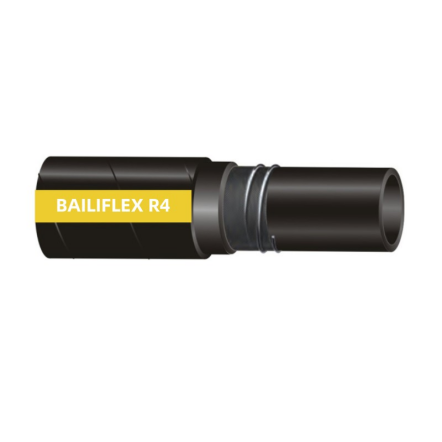nov . 11, 2024 04:38 Back to list
CE Certification for Exporting Hydraulic Hose Manufacturers and Suppliers
CE Certification for Hydraulic Hose Exporters Ensuring Quality and Compliance
In the global marketplace, the demand for high-quality hydraulic hoses has surged as industries such as construction, agriculture, and manufacturing continue to grow. Hydraulic hoses are essential components in various machinery, effectively transmitting hydraulic fluid to power different applications. To ensure safety, durability, and reliability, it is crucial for exporters of hydraulic hoses to obtain CE certification, a mark that signifies compliance with European safety and environmental standards.
Understanding CE Certification
CE marking is a certification that indicates a product's conformity with the relevant health, safety, and environmental protection legislation in the European Economic Area (EEA). For hydraulic hose exporters, obtaining CE certification is not just a regulatory requirement; it is also a testament to the quality and reliability of their products. The process involves a comprehensive evaluation of the product design, manufacturing processes, and final performance to ensure that it meets the stringent requirements set forth by European directives.
The Importance of CE Certification for Exporters
1. Market Entry and Acceptance In order to sell hydraulic hoses in the European market, exporters must adhere to CE marking requirements. The absence of this certification may hinder market access, resulting in significant financial losses. With CE certification, exporters can enhance their marketability in European countries and other regions that recognize CE standards.
2. Quality Assurance The CE certification process involves rigorous testing and assessment. It ensures that the hydraulic hoses are manufactured to high standards, which can significantly reduce the risks associated with product failures and safety hazards. Exporters can leverage this certification to build trust and credibility with customers, demonstrating their commitment to quality.
3. Competitive Advantage In a crowded marketplace, having CE certification can distinguish a company from its competitors. It serves as a quality badge that reassures customers about the reliability of the product. This differentiation can lead to increased sales and the establishment of long-term customer relationships.
4. Legal Compliance European Union regulations surrounding hydraulic products are stringent, and non-compliance can lead to hefty fines, legal disputes, and potential bans on product sales. By obtaining CE certification, exporters mitigate legal risks and ensure compliance with relevant directives, thus fostering a smoother operational environment.
The CE Certification Process for Hydraulic Hose Exporters
ce certification hydraulic hose exporters

The journey to obtaining CE certification involves several key steps
1. Identify Applicable Directives Exporters must first determine which European directives apply to their hydraulic hoses. Common directives include the Machinery Directive, Pressure Equipment Directive, and the Restriction of Hazardous Substances (RoHS) Directive.
2. Risk Assessment Conducting a risk assessment is vital in identifying potential hazards associated with the product. Exporters must evaluate factors such as pressure ratings, temperature resistance, and compatibility with hydraulic fluids.
3. Testing and Evaluation Hydraulic hoses must undergo rigorous testing to ensure they meet the required performance standards. This may involve third-party testing by accredited laboratories that specialize in hydraulic products.
4. Technical Documentation Exporters are required to compile the technical documentation, including test results, design specifications, and operational instructions. This documentation must demonstrate compliance with applicable directives.
5. Declaration of Conformity After successful testing and compilation of documentation, exporters must issue a Declaration of Conformity, confirming that their products meet all relevant EU requirements. This declaration must accompany the product when placed in the market.
6. Affix the CE Mark The final step involves affixing the CE mark on the product and its packaging. This mark signifies compliance and must be clearly visible to consumers.
Conclusion
In conclusion, CE certification is an indispensable asset for hydraulic hose exporters aiming to penetrate the European market. It not only facilitates legal compliance but also enhances product quality, builds customer trust, and provides a competitive edge. Engineers and manufacturers must understand the significance of CE marking in ensuring that their products are safe, environmentally friendly, and of high quality. As industries evolve and regulations tighten, investing in CE certification will not only prove beneficial in the short term but also ensure long-term success and sustainability in the global marketplace.
-
Best Four Steel Wire Spiral Hose Hydraulic R12 – Durable High-Pressure Hose Manufacturer
NewsJul.08,2025
-
High-Quality 1/4 Hydraulic Hose – Soft, Flexible & Durable Rubber Hoses for Industrial Use
NewsJul.08,2025
-
1 1 2 Inch Hydraulic Flexible Hose - Durable, Reliable, High-Pressure Solutions
NewsJul.07,2025
-
High-Quality 1 2 Rubber Hose - Durable, Flexible Hydraulic Solutions
NewsJul.07,2025
-
Discover SAE Hydraulic Hose Types - High Quality & Durable Hoses from Leading Factory Supplier
NewsJul.06,2025
-
High Pressure Wire Hydraulic Rubber Hose Supplier Durable & Reliable 1SN Hose Solutions
NewsJul.06,2025
